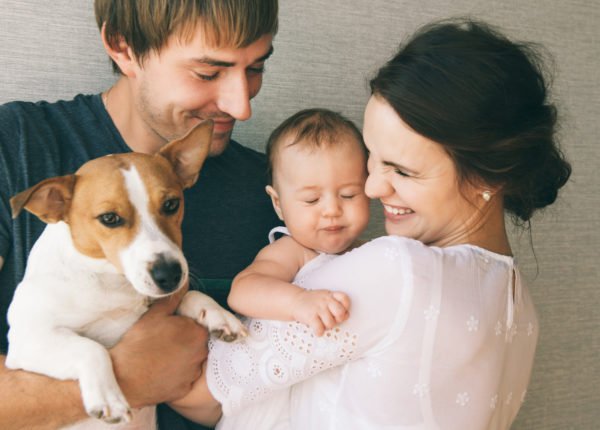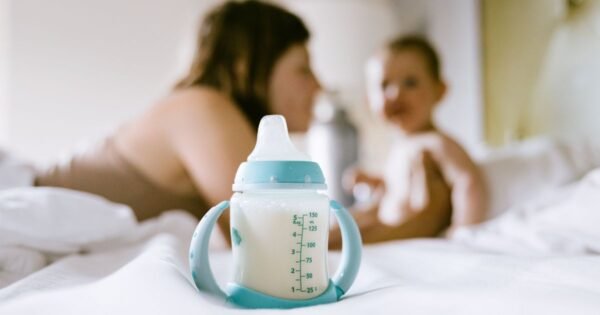
New Baby on the Way? Here’s How to Prepare Your Pet for Your New Arrival

Preparing your family and home for a baby is an exciting process. It’s common for expectant mums and dads to want to have the nursery sorted before welcoming their bundle of joy to their new home. Designing the nursery and buying in all of those new itty bitty baby things is an important part of the natural nesting instinct and its a lot of fun too!
Whilst getting your home and the nursery ready is essential, it’s equally important that your pet is fully prepared for life with a new family member.
The UK is a nation of animal lovers, with an estimated 51 million pets in homes across the country. The majority of pet owners treat their furry fellows as members of the family, and with more than 650,000 babies born in 2018, it’s important that our pets are well prepared for when a new member joins the family.
To help expectant parents prepare their pet for the arrival of their baby and make the transition as smooth as possible you can get professional help from companies such as Bark & Bitch for dog training in London or read on for our ten tips.
1. Expose your pet to babies and small children
Even the calmest and most well-behaved pet may get a little jealous when your new baby arrives. One of the best ways to help your dog or cat ease into the transition of a new family member is to slowly introduce them to other babies and small children. Call in help from friends and family with little ones and ensure your pet meets and interacts with them. Even if your pet appears to be getting on well, make sure to never leave them and a child unattended.
2. Invest in training
Now is the time to invest in extra training for your four-legged friend. No matter how well-behaved or trained your dog or cat is, a new baby in the family will be a big change that can lead to unexpected behaviours. Speak with a professional trainer about any changes you’re concerned about and how you can make the new addition as positive as possible.
3. Prepare your pet for changes in their routine
Early on in your pregnancy, it’s important to prepare your pet for changes to their routine once your baby arrives. It’s natural for you to have less time in your day to spend with your pet, so slowly introducing less attention or shorter walks should help prepare them. If you’re unsure on the best way to do this, always consult with a trainer.
4. Sort out sleeping arrangements
If your pooch or cat sleeps in your bedroom, it’s best to encourage them to sleep elsewhere in the house, as your little one and pet will disturb each other during the night. Sleep in the early days of parenthood is very precious and by encouraging your pet to sleep elsewhere before your baby arrives, you’ll help ease them into a new routine.
5. Establish boundaries
As well as sorting out new sleeping arrangements, it’s equally as important to establish new boundaries around the home, especially in areas where your baby will frequently be. The baby’s nursery is a key area where establishing boundaries is important. If you’re unhappy with allowing your pet into the nursery after your baby is born, initiate new boundaries for that room before your little one is born, to allow your pet time to get used to the new rules.
6. Get your pet a check up
Before your baby arrives, make an appointment for your pet to get a check-up at the vets to make sure they are in good health. Whilst at the vets, ask them to check your pet’s medical notes for any out of date vaccines and that your pet is up to date with tick and flea treatment, before coming into contact with the baby.
7. Make some noise
One of the most important ways you can prepare your pet for a new baby is to introduce them to sounds associated with babies and small children. Try playing sounds of a baby’s cry on YouTube, or turn on any musical toys or mobiles to get your pet used to different sounds.
8. Introduce your pet to your baby’s scent
The time just after your little one is born, but before they leave the hospital, is a crucial time to introduce your pet to your baby’s scent. Get your partner or family member to take home an unwashed baby grow or comforter to get your pet used to your baby’s scent before they arrive home.
9. Bond with your little one and pet together
It’s obvious you will spend more time with your new baby, as they are a lot more demanding than pets, however, you want to make sure your pet still feels like a loved member of your family. After careful introductions between your pet and baby, make sure to spend time with them both together, perhaps by allowing your pet to join you and sit next to you whilst you nurse or feed your baby.
10. Keep your pet’s food out of reach
If you keep your pet’s food bowl in an open area, make sure to move it to an area that is out of reach of your little one before they learn to crawl. Taking anything meant for the dog or cat out of reach of little hands will reduce the risk of your baby accidentally taste-testing food that can be unsafe for humans during the crawling and toddling stage.















































